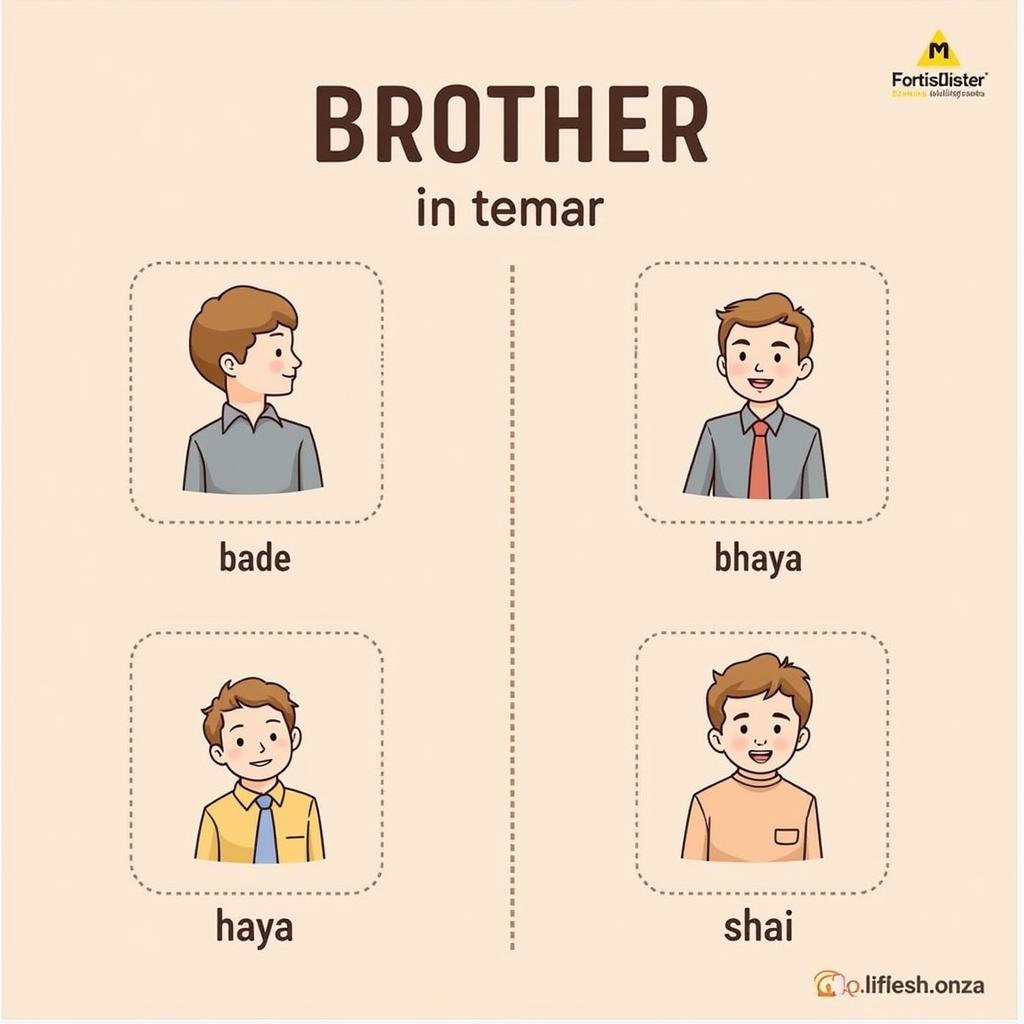“Bade bhaiya” in Hindi is a term of respect and endearment used to address an older brother. This article delves into the cultural significance, usage, and variations of this common Hindi phrase.
The Cultural Significance of “Bade Bhaiya”
In Indian culture, family relationships hold immense importance. Respect for elders is deeply ingrained, and language reflects this reverence. “Bade bhaiya,” literally translating to “elder brother,” goes beyond a simple familial title. It embodies a sense of responsibility, protection, and guidance. The term fosters a strong bond between siblings and reinforces the hierarchical structure within the family. This respect extends beyond blood relations, often being used to address older male figures within the community who are not related by blood.
Different Usages of “Bade Bhaiya”
“Bade bhaiya” has several applications in everyday conversation. It’s primarily used as a direct form of address:
- Within the family: Children use “bade bhaiya” to address their older brothers. This is a common practice across various regions of India.
- In social settings: The term can be used to address older males respectfully, even if there is no blood relation. This shows politeness and deference, especially in rural areas or more traditional communities.
- For shopkeepers or service providers: Using “bade bhaiya” when addressing a male shopkeeper or service provider can foster a sense of familiarity and respect, potentially leading to a more positive interaction.
Variations and Related Terms
The term also has variations depending on the region and dialect:
- “Bhaiya”: A shorter, more informal version, still conveying respect but suitable for closer relationships or informal settings.
- “Bhai”: An even more casual term used between close friends or equals. This term loses the connotation of age difference.
 Variations of the term "brother" in Hindi
Variations of the term "brother" in Hindi - “Dada”: Used in some regions like Bengal and Maharashtra to refer to an older brother.
Why is “Bade Bhaiya” Important?
Understanding the nuances of “bade bhaiya” is crucial for anyone navigating Indian culture. It demonstrates cultural sensitivity and respect for local customs. Using the term appropriately can facilitate smoother interactions and build rapport with people.
Common Questions about “Bade Bhaiya”
- Is it offensive to call someone “bade bhaiya” if they are not my brother? Not necessarily. While primarily used for older brothers, it can be a polite way to address older males in certain social contexts. However, observe the situation and the individual’s reaction to gauge its appropriateness.
- Can women use “bade bhaiya”? Yes, women can use “bade bhaiya” to address an older male figure, especially within a family or community setting.
“Bade Bhaiya” in Popular Culture
The term “bade bhaiya” is frequently heard in Bollywood movies and Hindi television shows, reflecting its prevalence in Indian society. These portrayals often depict the strong bond and respect associated with the term.
Conclusion
“Bade bhaiya” in Hindi is more than just a word; it’s a cultural concept reflecting deep-rooted values of respect and familial bonds. Understanding its usage can greatly enhance one’s understanding of Indian culture and facilitate positive interactions. By correctly using “bade bhaiya,” you demonstrate respect and build rapport in various social settings.
FAQs
- What is the literal translation of “bade bhaiya”?
- Elder brother.
- Is “bhaiya” less respectful than “bade bhaiya”?
- It’s more informal, but not necessarily disrespectful.
- Can I use “bade bhaiya” for any older male?
- It’s best used for family or in specific social contexts. Observe the situation.
- What is the female equivalent of “bade bhaiya”?
- “Didi” is often used for older sisters.
- What are some other ways to show respect in Hindi?
- Using respectful pronouns like “aap” and adding “ji” after names.
For further assistance, please contact Email: Contact@ViperCircle.com address: G-5, लोअर परेल, सेनापति बापट मार्ग, मुंबई, महाराष्ट्र – 400013, भारत।. We have a 24/7 customer service team.